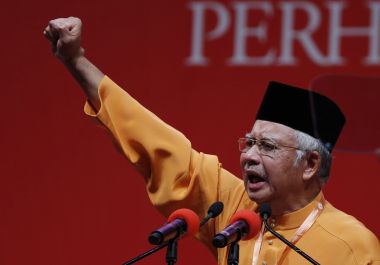'Hate campaigns' increasingly launched against atheists

There has been a "marked increase" in the systematic targeting of atheists across the globe, a report released today reveals.
Published by the International Humanist and Ethical Union (IHEU), the Freedom of Thought report states that "the overwhelming majority of countries fail to respect the rights of atheists and freethinkers".
"In 2014, in addition to laws such as those targeting 'apostasy' and 'blasphemy', we have seen a marked increase in specific targeting of 'atheists' and 'humanism' as such, using these terms in a broadly correct way (the users know what they are saying) but with intent clearly borne of ignorance or intolerance toward these groups," the report says.
An introduction written by Gulalai Ismail, the founder of Aware Girls, and Agnes Ojera of the Uganda Humanist Association, insists that "the rights of the non-religious, and the rights of religious minorities and non-conformists, are a touchstone for the freedoms of thought and expression at large.
"Discrimination and persecution against the non-religious in particular is very often bound up with political suppression, with fears about progressive values, or with oppression in the name of religion."
Humanists and secularists are, Ismail and Ojera contend, "often among the first to ask questions, and to raise the alarm when human rights are being trampled, when religion is misused or abused, or – even with the best intentions – if religion has become part of the problem.
"Silence the non-religious, and you silence some of the leading voices of responsible concern in society," they warn.
According to the report there has been a "surge" in hate speech against non-believers not only by extremist groups, but also political and state leaders in recent months. Additionally, this sentiment is being increasingly enshrined in law. For example, it is a capital offence to commit apostasy or blasphemy in 13 Muslim countries, where "in effect you can be put to death for expressing atheism".
"Discrimination against the non-religious is often caused, not by a desire to hurt atheists, but by the desire to help one or more religion," the report adds. "The promotion by the state of religious privilege is one of the most common forms of discrimination against atheists."
The study criticises Malaysian Prime Minister Najib Razak, a devout Muslim, for his branding of humanism and secularism as "deviant", as well as an Egyptian campaign in June 2014 which aimed to spread awareness of "the dangers of atheism".
A Saudi Arabian law enacted in January this year comes under fire for equating atheism with "terrorism". The legislation banned "Calling for atheist thought in any form, or calling into question the fundamentals of Islamic religion."
The report also highlights religious privilege in Britain, claiming that it "remains in many spheres of UK life". It notes that senior Church of England bishops are granted automatic membership to the House of Lords, while a third of state-funded schools in England are "designated with a religious character" and are "typically allowed to discriminate against students in their admission policies, favouring those of the faith".
Chief Executive of the British Humanist Association, Andrew Copson, who also serves as First Vice President of IHEU, said it is important that the religious and non-religious speak up about increased marginalisation of atheists, as "when freedom of thought is threatened, every minority suffers."
He added: "We, the international humanist movement, are taking a united stand to draw public and political attention to the human rights violations perpetrated against the non-religious, and by protecting our right to be non-religious we are also taking a strong stance for religious diversity.
"The fight for secular values is not a fight between religion and Humanism, but between authoritarianism and individual freedom."
Speaking to Christian Today, Copson warned that "increasingly, political regimes of all sorts are seeking to align themselves with traditional religious identities and religious groups in order to maintain their position, which is very dangerous for all minorities."
Though the UK is "a long way from Egypt, Saudi Arabia, Indonesia or Malaysia", it is "on a spectrum," he said.
British political figures "have made use of religious identities which are not inclusive of minorities, and that is something that isolates an individual's freedom of conscience," Copson argued, adding that whether or not we agree with someone else's belief, we must defend their right to hold it.
"It is extremely important that anyone who cares about freedom of belief, religion or thought stands together...It's a shame in Britain if we only stand up for the rights of Christians persecuted abroad. We should be standing up for Hindus, Muslims, Buddhists, Atheists and anyone who is persecuted anywhere.
"The freedom of religion is a universal human right, and if we only stand up for one group or another, we are tarnishing our reputation in the world as well as not being true to our values of the freedom of conscience."











